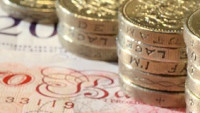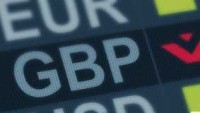
The safe haven yen was the top performing major currency in today’s European Session due to a souring in risk appetite. The 112 yen level was being tested by the dollar at more than one-week lows.
The pound remained under pressure from ongoing Brexit concerns, taking down the euro with it since the risk of the UK leaving the EU is not just a threat to the British currency but also to the single currency. Both political as well as economic implications exist, as the UK’s potential exit may damage trade and impact on growth for both economies.
Sterling languished near seven-year lows reached against the dollar yesterday and fell below the key $1.41 level in late session trading today.
Bank of England Governor Mark Carney testified before Parliament about the Bank’s latest projections for the UK economy. He acknowledged the referendum premium in sterling as the currency has come under pressure due to Brexit. Carney added that the BoE has room for a rate cut should the UK economy weaken.
The euro fell against the dollar early in the session and tested the key $1.10 level. Adding weight to the single currency was disappointing data out of Germany – Europe’s largest economy. The closely-watched IFO business climate survey showed German business morale fell for a third straight month in February to reach its lowest level in more than a year. The index slipped to 105.7 in February from 107.3.
Meanwhile, German growth data was nothing to note, as fourth quarter GDP remained at 0.3% and the annual reading stayed at 2.1%, both as expected. Today’s data comes after yesterday’s weak German manufacturing PMI numbers. The string of soft data indicate that Europe’s engine of growth has lost momentum.
In commodities, gold was supported by safe haven demand and traded above $1215 during European trading.
Oil was doing well until it fell sharply in late session trading back below $33 a barrel in reaction to comments by Iran’s oil minister Mr. Zanganeh that OPEC’s demand for a production freeze on Iran was unrealistic.
Economic data out of the US today were related to the housing market and consumer confidence.
Existing home sales rose 0.4% in January against expectations for a drop of 2.9%. December was revised down to +12.1%. Meanwhile, US home prices rose 5.7% over 12 months to December according to Case-Shiller data, below the 5.8% expected. But what caught the market’s attention was consumer confidence which fell to the lowest since July 2015 according to the Conference Board consumer confidence index which slid to 92.2 in February from 97.8 the previous month. Focus will now shift to Fed Vice Chair Stanley Fischer’s speech at 8:30 p.m. ET.
Source: XM Broker













